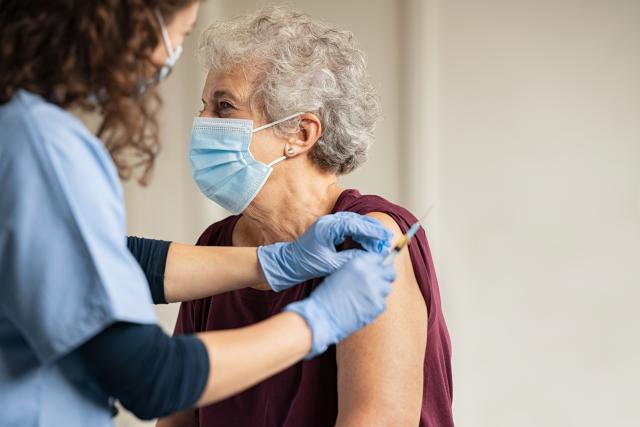By Christopher Carter, Ceo Of North Western Melbourne Primary Health Network
You may remember that earlier this year there was an advertising campaign on television and radio and online urging us to get a booster vaccination against COVID-19.
If you hadn’t had a jab, or a case of coronavirus, for at least 6 months, the adverts said, it was time to “top up”, “pump up” and “keep your guard up”. It was useful and timely advice – resulting in just shy of 4 million booster doses being administered around the country between January and August.
You know what? It’s now more than 6 months since that advertising campaign started running – so is it time to go and get the needle again?
Well, on September 1, 2023, the Australian Technical Advisory Group on Immunisation (ATAGI), the body that makes these decisions, updated its advice and the answer to that question is a very definite “maybe”.
ATAGI reported that COVID-19 case numbers have gone up and down this year, declining substantially in the second half of the year. Despite the dip, the group notes that infections continue to occur – and that this bug isn’t going to disappear any time soon (if ever).
Most cases of severe illness – where people needed to go to hospital – happened in older adults, especially those 75 and over. The new advice for this age group is if it’s been 6 months or more since you’ve had a booster it is strongly recommended that you get another jab.
The advice for the next group of not-quite-so-old adults – those between 65 and 74 – is to “consider” getting a booster if you haven’t had one lately. It’s up to you and your GP, but it might be better to be safe than sorry – especially if you also have any chronic conditions, such as lung issues.
For other adults, ATAGI suggests an additional booster only for people who are severely immunocompromised. For all others, and all children and teens, another jab isn’t recommended at all.
You might wonder why. The experts say that younger people have lower rates of severe illness, hospitalisation and death from COVID-19 compared to older folk. This is more so these days because much of the population is currently well protected because of previous vaccinations – including this year’s boosters – and immunity built up from past infections.
Here’s a sobering bit of information, reported by ATAGI. Testing at the end of last year indicated that about 70 per cent of adults and 64 per cent of children had been infected by coronavirus.
So, the gist of it all? If you are in a priority group identified by the experts, think about getting another booster. If not, just continue to take care – wearing masks in crowded places, gathering outdoors or in well-ventilated spaces, doing a RAT and staying home if you’re sick, all that sort of thing.
ATAGI continues to monitor the COVID-19 pandemic here and around the world, including keeping an eye on new variants being found. If the situation changes, so will the vaccination advice.







